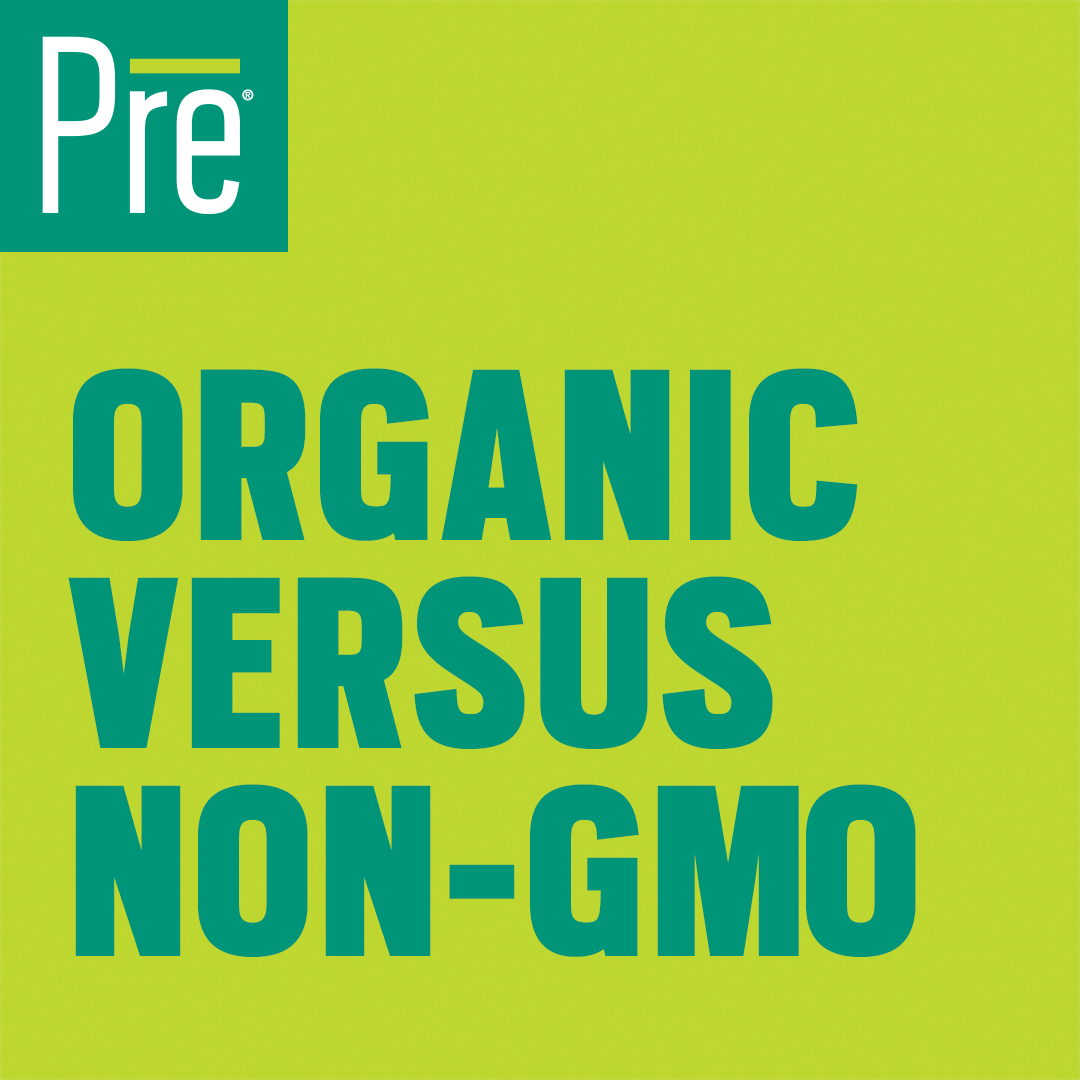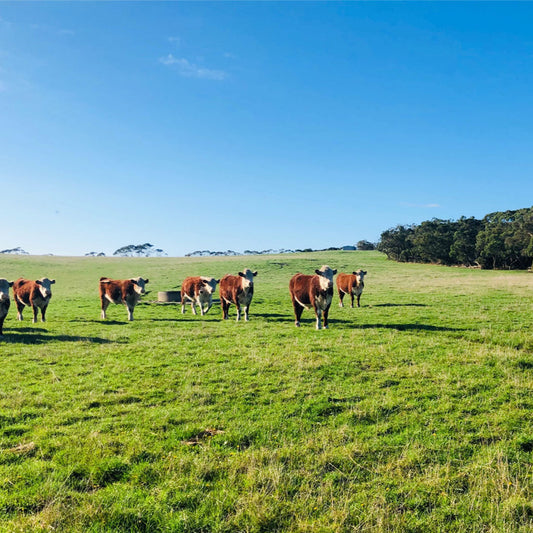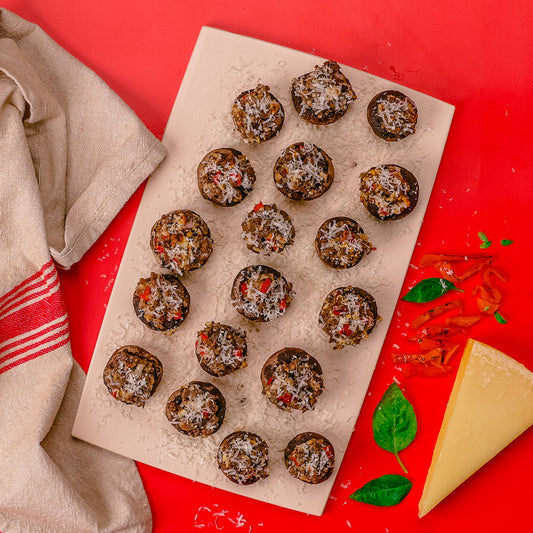
Organic vs. Non-GMO: They’re different. Here’s how.
If you’re reading this, you’re the person who doesn’t just grab the first apple or granola bar that you see. You examine it first. You read the label. Because you want to make an informed decision. So what is the difference between Organic vs. Non-GMO?
But we all know that labels can be confusing. You can get the full run-down of meat labels from Pre’s Quality Manager Julie Divis in this video. But today, we’re diving a little deeper into two heavy hitters. Two food claims hotly sought-after by today’s health-focused consumer: organic vs. non-GMO.
They’re different. Here’s how.
To earn the meaningful labels you see on foods, products and companies must go through a comprehensive third-party review. A government body does this review, like the U.S. Department of Agriculture (USDA), the Food and Drug Administration (FDA), or another certifying organization. They do this to be sure the product and company practices abide by the qualifications of that label. Having an outsider verify products’ contents, sourcing, production, or other characteristics described by the label helps to ensure labels are properly used.
USDA Certified Organic and Non-GMO Project Verified are two of these powerful, meaningful, third-party certified labels.
But What Does Organic vs. Non-GMO mean, and How are They Different?
At the highest level, organic foods have not been genetically modified, but non-GMO foods may or may not be organic. Organic is an umbrella term, with non-GMO beneath it as one of its qualifications.
USDA Certified Organic food has been produced, from farm to package, within guidelines determined by USDA, which prohibits the use of GMOs. In addition, organic farmers are not allowed to use synthetic pesticides, petroleum-based fertilizers or sewage sludge-based fertilizers, among other finer details.
On the flip side, non-GMO food and food with the Non-GMO Project Verified label can be grown using any practices that don’t involve genetic modification. So, non-GMO food might be certified organic, and it might not be – you have to check the label to be sure.
Which is More Important for Your Own and Your Family’s Wellbeing?
Like many things in food and nutrition, the answer is not black and white. Which is more important depends on the type of food – organic or non-GMO may matter more for some foods than others – and the other characteristics that make up the overall quality of the food.
In addition, the labels on a package might not always tell the full story. For example, many products on the market that come from small, independent farmers are 100% organic. Still, because the USDA Certified Organic seal is not free, the cost may be prohibitive for those farmers to be able to use the seal on their products, or there may be other reasons they’ve chosen not to go through organic certification.
Why Pre is Not Organic
Take Pre, for example. We source our beef from thousands of small farms in New Zealand and Australia, some of which have yet to go through an organic review. That’s why – despite sourcing from farms who hold themselves to the highest standards to produce top quality, pasture-raised, grass-fed, and finished beef without added antibiotics, added hormones, or GMOs – Pre beef does not bear the USDA Certified Organic stamp.
In addition, while organic varieties of some foods may be preferable, at Pre have found that most organic beef hasn’t met our taste standards and isn’t consistent. Also, being labeled organic doesn’t guarantee that the beef is pasture raised or raised with care – two characteristics that we care a lot about. You can also feed animals organic corn and organic grain, which qualify as organic meat. But Pre's cattle do not eat any corn or grain, ever.
We decided to go a different route and find the best pasture-raised, grass-fed, and grass-finished beef. Our beef brings both a consistent, delicious beef-eating experience and the health benefits.
The Bottom Line
Organic and non-GMO, like most food labels, are meaningful but don’t tell the full story. There are countless other factors that might impact that food’s overall quality and place in your diet.
Want to know more about some of those other factors that make Pre beef what we humbly consider the best beef in the world? Explore our products here, find answers to frequently asked questions here and learn all about our sourcing and nutrition here.


